The Making of a Citizen
Johnny Rico’s journey in "Starship Troopers" reveals how true patriotism is shaped through hardship, personal loss, and the quiet resolve to serve something greater than oneself.
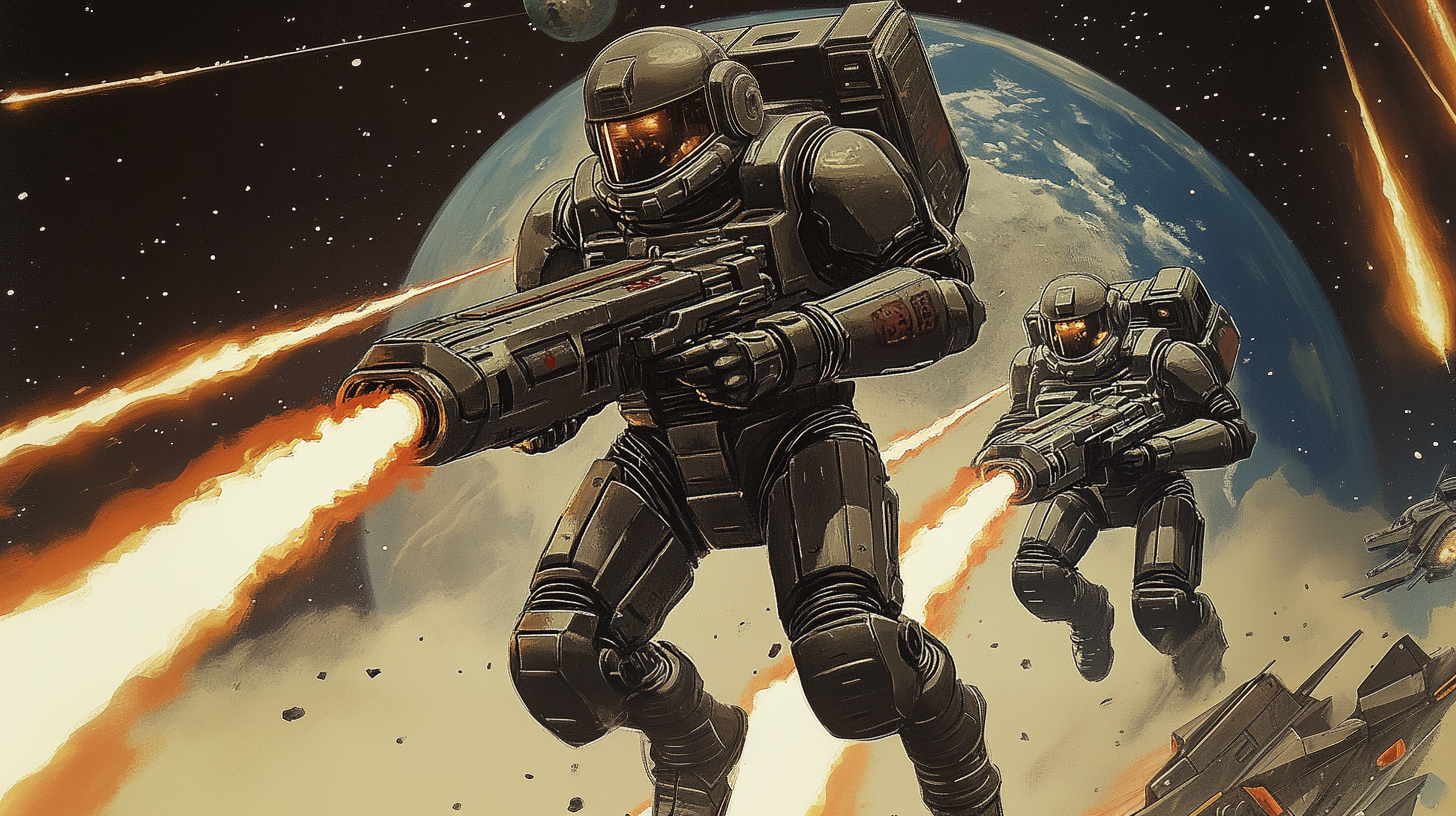
Robert A. Heinlein's "Starship Troopers" opens with a society unlike our own but grounded in a clear sense of order and moral purpose.
In this future Earth, the right to vote is not automatically given by birth or granted. It is earned through voluntary federal service. The idea is simple—only those willing to risk their lives for the protection and continuation of civilization have demonstrated the judgment and maturity required to shape it.
At the center of the novel is Juan "Johnny" Rico, a young man from a well-to-do family who joins the Mobile Infantry more out of curiosity and rebellion than principle. He begins with little understanding of the oath he takes. But as the story progresses, the military structure around him begins to forge something more substantial. The transformation is slow and painful. Through boot camp, combat, and the loss of comrades, Rico begins to understand that service is not about personal advancement. It is about the preservation of something greater than the self.
Heinlein does not offer comfort in this vision of the future. He presents a sober argument that freedom survives only when it is defended by those who accept responsibility for its preservation. Rico’s journey, shaped by challenge and growth, becomes the Federation’s quiet validation that citizenship is earned through effort, not inherited.
From Comfort to Commitment
Johnny Rico does not enlist in the Mobile Infantry out of patriotism or a desire for honor. His decision is impulsive, driven by a mixture of adolescent pride, peer pressure, and a vague attraction to the unknown. He follows his friend Carl and tries to impress Carmen, who chooses the Fleet over the Infantry. His father strongly disapproves, expecting Johnny to join the family business and enjoy a life of luxury. But Rico, still uncertain of who he is, signs the papers and steps into a world where comfort has no place.
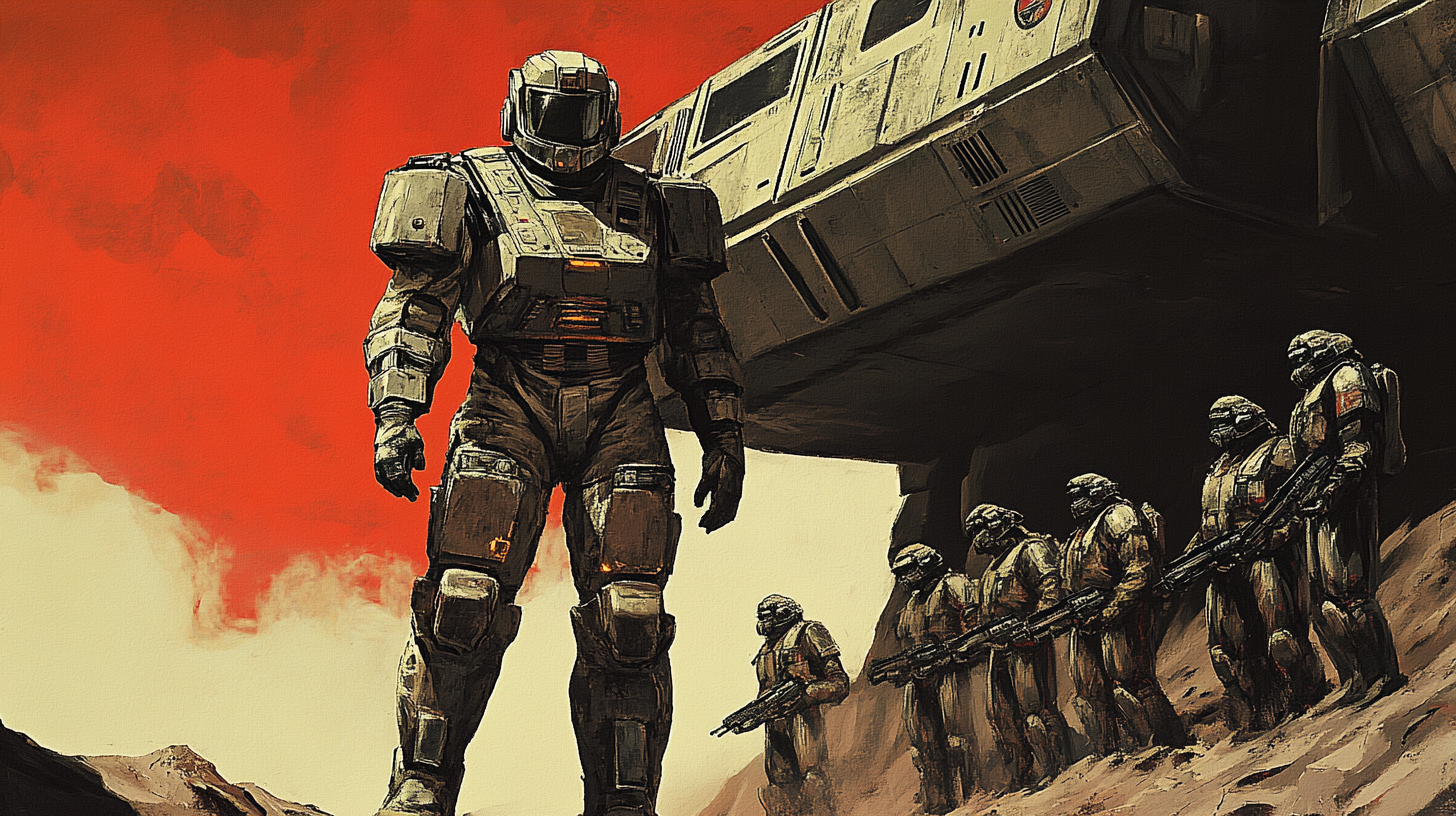
The transition from civilian ease to military hardship is immediate. Boot camp under Sergeant Zim is no schoolboy adventure. Rico is stripped of his privileges and placed under a system that values order, discipline, and personal accountability. He struggles to keep up. He watches others fail, suffer injuries, and quit. For the first time in his life, consequences are real and unavoidable.
These early experiences mark the beginning of a profound change. Rico is not yet committed, but the first illusions have fallen away. Heinlein uses this period to show that the Federation's military is not a place for thrill-seekers. It is a proving ground where boys are broken down and, if they have the grit, remade into men who can carry the burden of responsibility. Rico is still on the threshold, but he is beginning to understand the weight of the path he has chosen.
The Furnace of Training and Combat
In "Starship Troopers," the Mobile Infantry is more than a fighting force. It is a crucible that separates the unwilling from the resolute. For Johnny Rico, life in the infantry demands endurance, obedience, and constant self-evaluation. The training is grueling, both physically and mentally. The soldiers are taught to jump from orbit, wield powered armor, and survive hostile alien worlds. But the real lesson is deeper. They learn to follow orders without hesitation and to trust the chain of command as a lifeline.
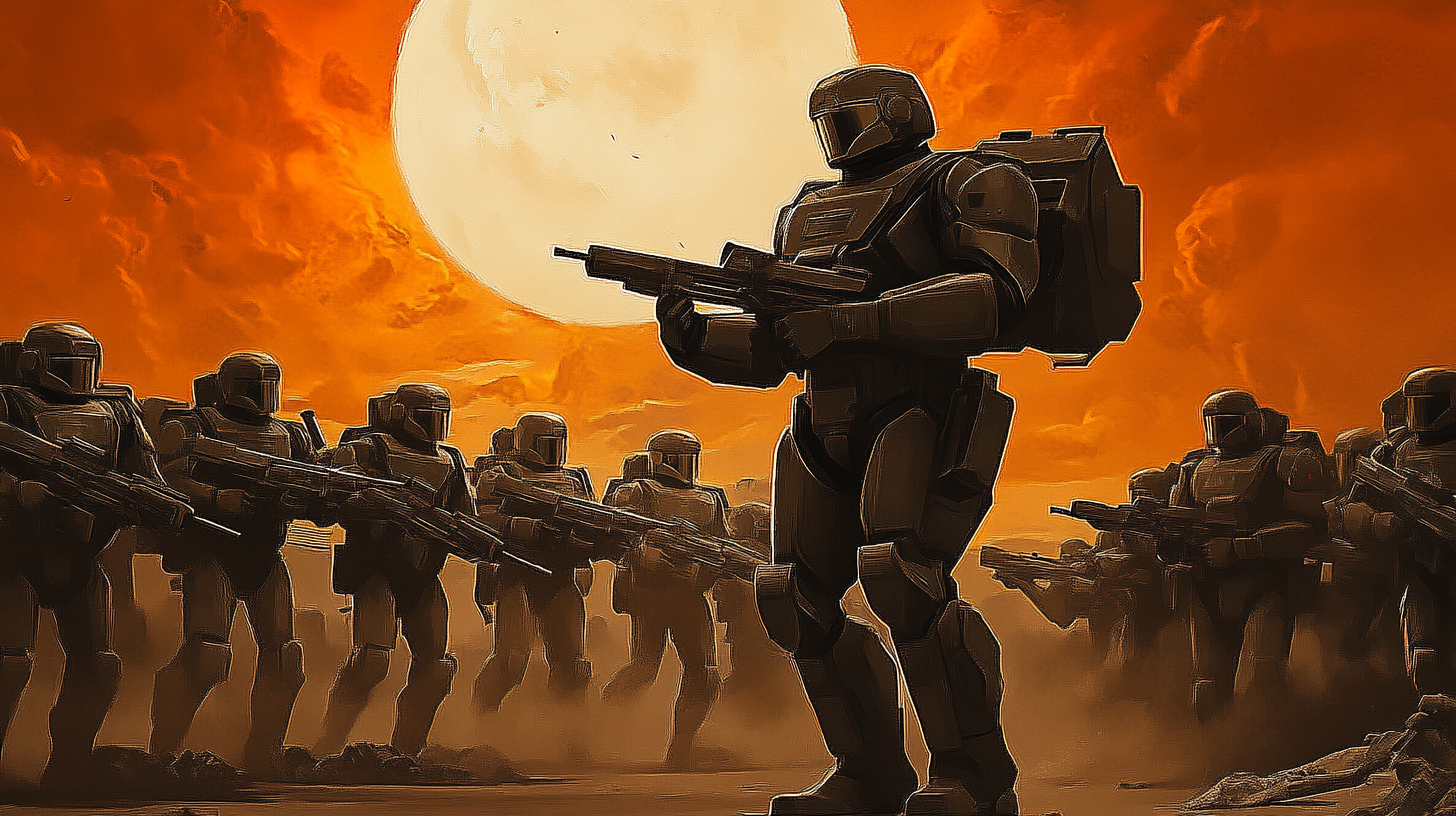
Rico begins to see that nothing in the Federation is left to chance. There are no shortcuts. Every punishment has a purpose, and every rule points to a larger order. The system is harsh, but it is just. Through repetition and exposure to danger, Rico learns that the military’s rigid structure is not about control for its own sake. It is about survival, unity, and building men who remain steady in the face of fear.
The loyalty formed under fire is unlike anything Rico has known. He fights beside men who were once strangers, bound now by shared trials and mutual respect. He watches sergeants and officers carry burdens heavier than their own. In this world, leadership is not a title but an earned responsibility.
As the battles intensify and the casualties mount, Rico changes. The boy who joined on a whim is fading. What emerges is a soldier who respects the tradition that shaped him, who finds purpose in the uniform, and who understands that liberty without cost is an illusion.
Leadership Through Loss
Johnny Rico’s rise through the ranks is not marked by ambition. It is marked by necessity and sacrifice. As fellow troopers fall and the burden of command shifts, Rico finds himself called to lead. He does not seek it, but he does not shrink from it either. Each promotion comes with the weight of lives lost, and each decision carries consequences that cannot be undone.
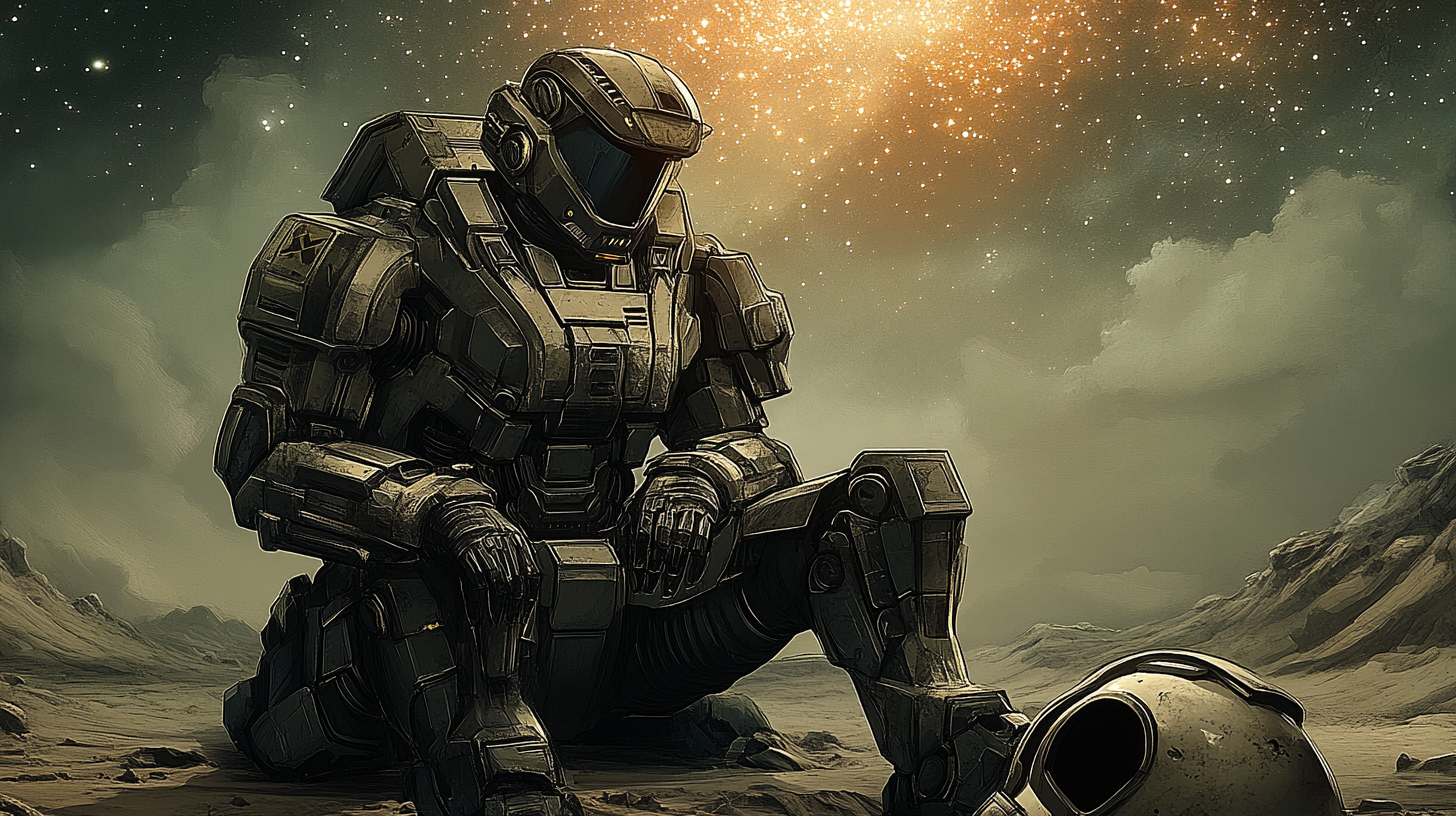
One of the most powerful aspects of "Starship Troopers" is the way Heinlein ties leadership to personal loss. Rico witnesses the deaths of friends and mentors, including those who first taught him what it meant to serve. These moments are not dramatized for effect. They are presented with the quiet finality of military life, where mourning must give way to the next objective. In this atmosphere, Rico begins to understand that sacrifice is not an exception. It is the rule.
He also learns that authority is not inherited or granted by charm. It is earned by consistency, by courage under pressure, and by the willingness to take responsibility when things go wrong. As a young officer, Rico begins to make decisions that affect the lives of others. The burden of command reshapes him more than any drill or deployment.
In the Federation, leadership is not about status. It is about service. Rico comes to embody that truth. Each loss deepens his resolve. Each hardship sharpens his focus. By the time he wears officer’s insignia, he has earned more than rank. He has earned the right to be called a citizen.
The Citizen’s Reward
By the end of "Starship Troopers," Johnny Rico is no longer the uncertain boy who joined the Mobile Infantry to follow a girl. He is a seasoned officer, tested in battle and hardened by loss. But more importantly, he is a citizen in the true sense defined by the Federation—a man who has proven, through action, that he is willing to place the needs of his nation above his own.
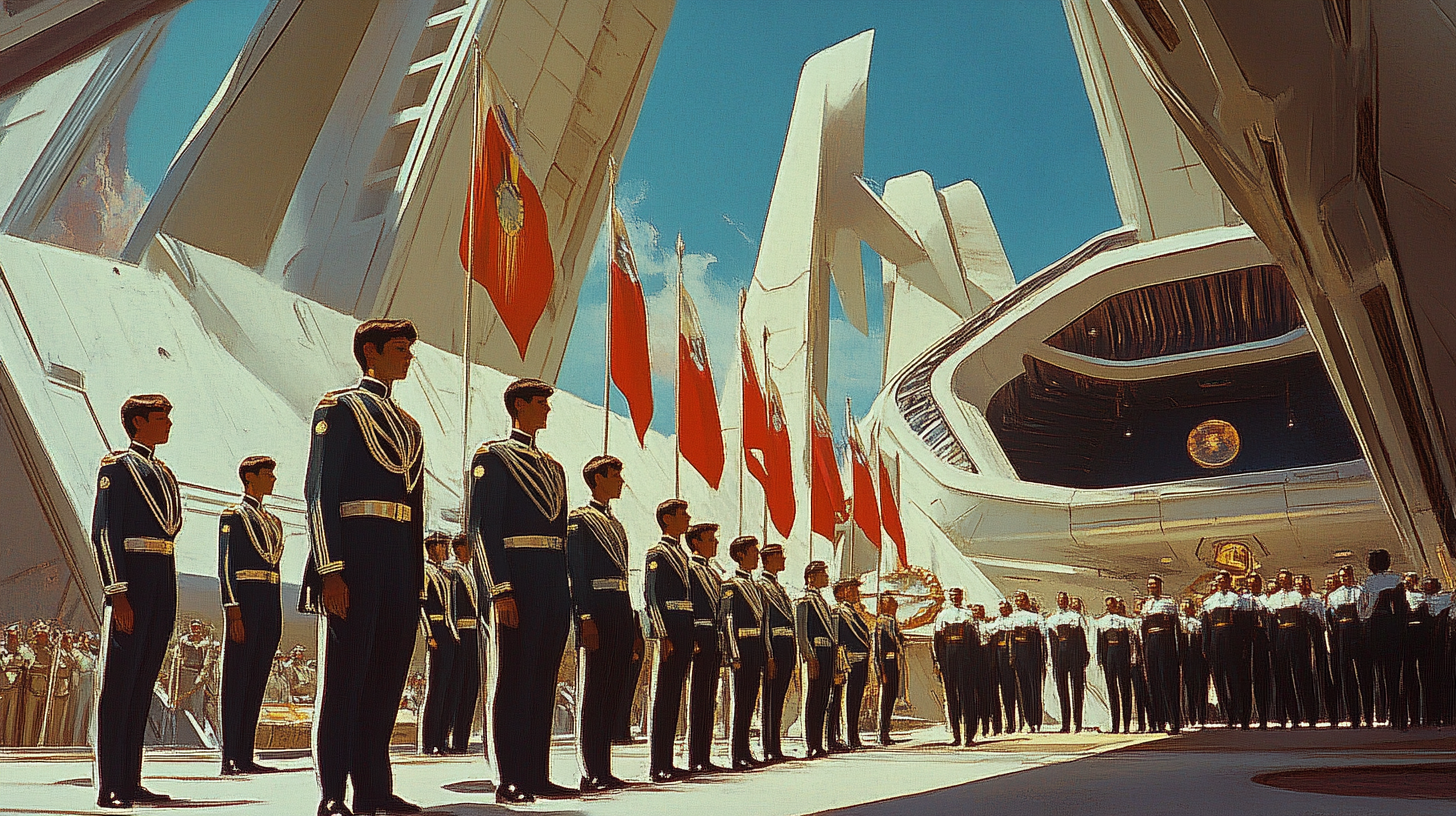
Heinlein does not present patriotism as a feeling or a slogan. In the world of the Federation, patriotism is a duty. It is the quiet discipline of those who wake before dawn, carry out their orders, and do not flinch when the cost is high. Rico’s transformation is complete not when he receives a medal or a title, but when he fully accepts that service is its own reward.
In a time of uncertainty, Heinlein leaves no doubt that liberty persists only when men accept the burden of its defense.

